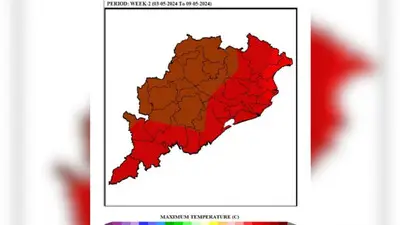Recommended Stories
India on May 23 signed agreement to buy natural gas from Turkmenistan at a rate equivalent to 55 per cent of crude oil price which, at USD 100 a barrel, translates into USD 9.17 per million British thermal unit, sources privy to the development said.
After adding transit fee and transportation charges, the gas through Turkmenistan-Afghanistan-Pakistan-India (TAPI) line would cost USD 12.99 per mmBtu at Indian border, three times the price paid to ONGC and Reliance Industries for producing natural gas from domestic fields, they said.
The rate agreed to flies in the face of oil ministry which has been stonewalling any increase in price to be paid to domestic producers arguing that a higher gas price would lead to an increase in power tariff and cost of fertiliser, thereby entailing higher government subsidy outgo, they added.
Besides the higher price, India has also in the Gas Sales and Purchase Agreement (GSPA) signed in Caspian Sea resort of Avaza, Turkmenistan agreed to take delivery of natural gas at Turkmen-Aghan border.
State-run gas utility GAIL India, which signed the GSPA, will then entrust the delivery of the gas to a consortium which will operate the TAPI pipeline, they said, adding that GAIL will be a prominent member of the consortium building and operating the 1,680-km line.
Sources said GAIL will pay Turkmengaz, the national oil company of Turkmenistan, on delivery of gas at Turkmen-Afghan border. Thereafter, the consortium which will have GAIL as partner, will take responsibility for transit of the gas through Afghanistan -- one of the top high security risk countries in the world, and terrorism hotbed Pakistan.
The safe transit of gas through 735-km stretch of the pipeline in Herat and Kandahar province of Afghanistan had a slim fighting chance in the past decade as NATO was still in the nation once ruled by Taliban.
The western troops pullout by 2014 from the still volatile Afghanistan has put a question mark on safe transit, the sources said.
TAPI pipeline is nearly 1,680-km long and the transit length in Afghanistan is 735 kilometres and in Pakistan is nearly 800 km or more. The 56-inch diameter pipeline is expected to cost USD 7.6 billion.
It will run from Turkmenistan`s Yoloten-Osman gas field to Herat and Kandahar province of Afghanistan, before entering Pakistan. In Pakistan, it will reach Multan via Quetta before ending at Fazilka (Punjab) in India.
Turkmenistan would export 90 million standard cubic meters per day of gas through TAPI, with Afghanistan getting 14 mmscmd and India and Pakistan 38 mmscmd each.
The gas will be sourced from the Yoloten Usman field, which ranks amongst the five biggest fields in the world. The field is being developed by Turkmensitan national oil firm Turkmen Gas.
Meanwhile, on pricing, Minister of State for Petroleum and Natural Gas R P N Singh had on May 22 told the Rajya Sabha that Oil and Natural Gas Corp (ONGC) has stated that its Krishna Godavari basin deepsea gas find is not viable at a rate less than USD 5.2 per mmBtu.
ONGC`s UD-1 find in block KG-DWN-98/2 sits next to Reliance Industries` KG-DWN-98/3 or KG-D6 block for which the government has fixed USD 4.205 per mmBtu as gas price.
Sources said if domestic producers are paid a higher price, the government gains most by way of higher royalty and taxes and profit petroleum it would earn.












